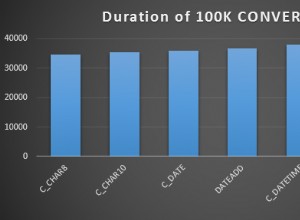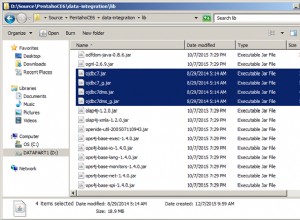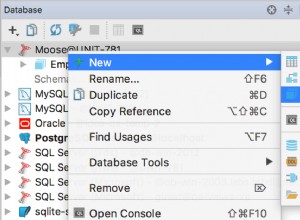Necesitas trabajar con Ajax en este caso. Sin actualizar la página, seleccionar cualquiera de la columna A le dará el valor de la columna B correspondiente. Por ejemplo
<form method="post" name="form1">
<table border="0" cellpadding="0" cellspacing="0" width="60%"><tbody>
<tr>
<td width="150">Country</td>
<td width="150"><select style="background-color: #ffffa0" name="country" onchange="getState(this.value)"><option>Select Country</option><option value="1">USA</option><option value="2">Canada</option> </select></td>
</tr>
<tr>
<td>State</td>
<td>
<p id="statediv">
<select style="background-color: #ffffa0" name="state"><option>Select Country First</option> </select></td>
</tr>
<tr>
<td>City</td>
<td>
<p id="citydiv">
<select style="background-color: #ffffa0" name="city"><option>Select State First</option> </select></td>
</tr>
</tbody></table>
</form>
Como puede ver arriba, en el evento onChage del menú desplegable del país se llama a la función getState() del javascript que cambia los valores de las opciones del menú desplegable Estado, veamos el código de la función getState().
function getState(countryId)
{
var strURL="findState.php?country="+countryId;
var req = getXMLHTTP();
if (req)
{
req.onreadystatechange = function()
{
if (req.readyState == 4)
{
// only if "OK"
if (req.status == 200)
{
document.getElementById('statediv').innerHTML=req.responseText;
} else {
alert("There was a problem while using XMLHTTP:\n" + req.statusText);
}
}
}
req.open("GET", strURL, true);
req.send(null);
}
}
El código del archivo PHP findState.php, que completa las opciones en el menú desplegable del estado que se obtiene de Ajax, se proporciona a continuación
<? $country=intval($_GET['country']);
$link = mysql_connect('localhost', 'root', ''); //changet the configuration in required
if (!$link) {
die('Could not connect: ' . mysql_error());
}
mysql_select_db('db_ajax');
$query="SELECT id,statename FROM state WHERE countryid='$country'";
$result=mysql_query($query);
?>
<select name="state" onchange="getCity(<?=$country?>,this.value)">
<option>Select State</option>
<? while($row=mysql_fetch_array($result)) { ?>
<option value=<?=$row['id']?>><?=$row['statename']?></option>
<? } ?>
</select>
En el menú desplegable de estado anterior, se llama a la función getCity() en el evento onChage con el parámetro countryId y stateId, ahora veamos el código de la función getCity()
function getCity(countryId,stateId)
{
var strURL="findCity.php?country="+countryId+"&state="+stateId;
var req = getXMLHTTP();
if (req)
{
req.onreadystatechange = function()
{
if (req.readyState == 4) // only if "OK"
{
if (req.status == 200)
{
document.getElementById('citydiv').innerHTML=req.responseText;
} else {
alert("There was a problem while using XMLHTTP:\n" + req.statusText);
}
}
}
req.open("GET", strURL, true);
req.send(null);
}
}
En la función ajax anterior, se llama a findcity.php y este archivo PHP completa el menú desplegable de la ciudad de acuerdo con los parámetros proporcionados, país y estado del método get. Ahora veamos el código de findcity.php,
<?php $countryId=intval($_GET['country']);
$stateId=intval($_GET['state']);
$link = mysql_connect('localhost', 'root', ''); //changet the configuration in required
if (!$link) {
die('Could not connect: ' . mysql_error());
}
mysql_select_db('db_ajax');
$query="SELECT id,city FROM city WHERE countryid='$countryId' AND stateid='$stateId'";
$result=mysql_query($query);
?>
<select name="city">
<option>Select City</option>
<?php while($row=mysql_fetch_array($result)) { ?>
<option value><?=$row['city']?></option>
<?php } ?>
</select>
Y eso es todo, se completará la lista desplegable triple de ciudad, país y estado que usa Ajax y PHP.




